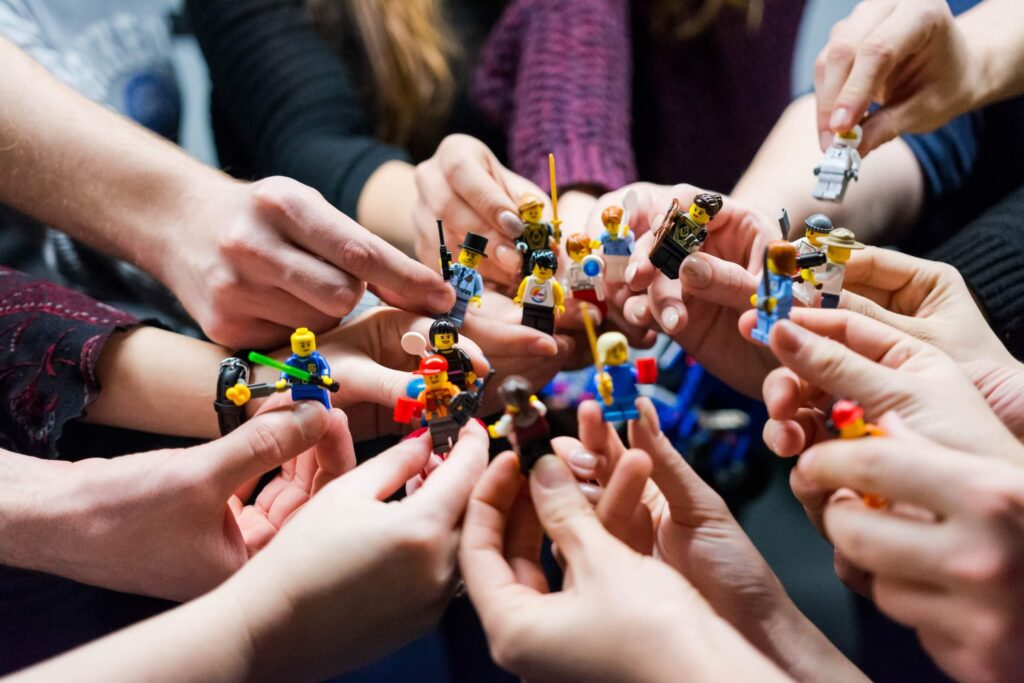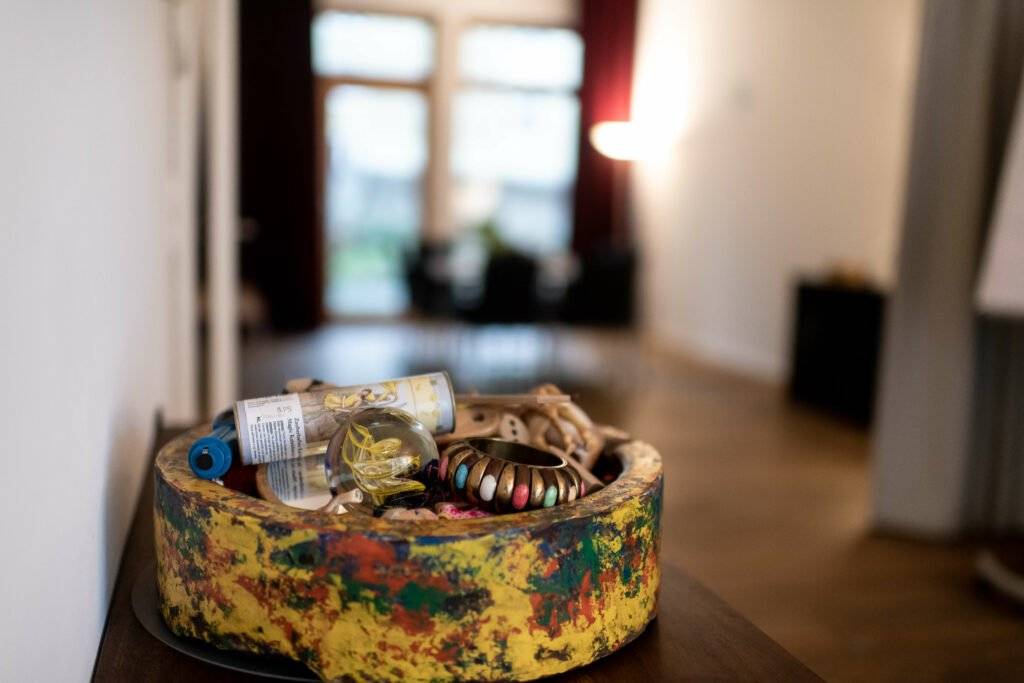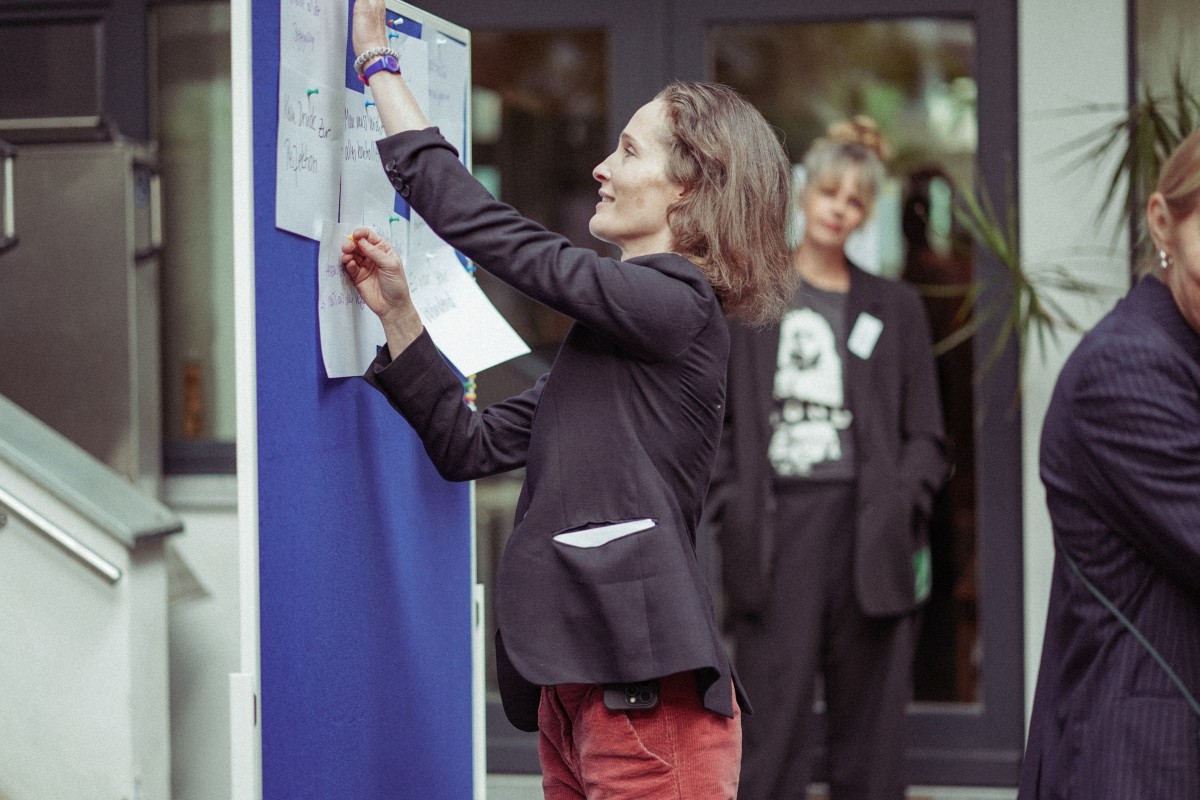In-house training at SEQUOYA: Possible topics
All our training courses are very practice-oriented and are offered by experienced trainers from the SEQUOYA team who have specialist knowledge on the respective topic.
Depending on the length of the workshop (1 to 3 days), participants experience the topic in varying depth. We will be happy to provide you with an individual offer for an in-house training course that best suits your team and your goals.

We have a lot of experience with in-house training on these topics. We are happy to adapt the content to your individual wishes and goals.
-
Workshops on team building, improved communication, work organization
-
Stress management and burnout prevention
-
Training for lively presentations and a confident demeanor
-
Moderation of meetings in theory and practice
-
Negotiation training for everyday work
-
De-escalation training and violence prevention
-
Dealing confidently with abusive men at work
Details of our in-house training courses
Workshops on team building, improved communication, work organization
Our team-building workshops deepen mutual trust and facilitate constructive conflict resolution. They also promote team spirit and job satisfaction – important factors for retaining specialist staff.
Target group: Departments and project teams, management teams, large and small teams in companies, public authorities, non-profit organizations or social institutions.
Contents: The topics of our workshops on team building, improved communication and work organization depend on your individual challenges and goals, for example, getting to know your strengths and resources as a team better, clarifying roles, defining common values, developing goals,…


Training: stress management and burnout prevention
Participants learn practical strategies for more serenity in everyday working life. The aim is to sharpen awareness of the three pillars of stress competence: Recognizing, understanding and managing stress.
Target group: Managers, people in helping professions
Contents: Recognizing symptoms of stress / recognizing personal stress intensifiers and deriving ways of avoiding and reducing stress / methods of recovering after a stressful phase / burnout prevention: recognizing warning signs, raising awareness of the different phases of burnout
Training for lively presentations and a confident demeanor
90 percent of human communication is non-verbal. To convince others of something, it is therefore less important what they say. But how you present it. This is exactly what participants learn the tools for in this training course.
Target group: Board members, managers and anyone else who wants to convince other people of their ideas at work.
Contents: Structure of presentations: Argumentation structure, conscious design of beginning and end / Confident appearance in front of an audience and confident handling of stage fright / Importance of vocal accentuation, pauses and body language / Relaxation, breathing, voice and speech training. Many practical exercises, video recording possible.


Training: Moderation of meetings in theory and practice
Structured, efficient, goal-oriented – unfortunately, this ideal of meetings is rarely achieved in everyday working life. In our workshop, participants are given everything they need to lead smaller and larger meetings with confidence.
Target group: (prospective) managers, committee chairs, employees with project responsibility, members of the works council
Contents: Attitude and role of the moderator, moderation methods, roadmap and phases of moderation, challenges, practical moderation exercises (with video recording on request)
Negotiation training for everyday work
In salary and collective bargaining, the word “negotiation” is already in the name. But there are many more negotiation situations in working life: Annual appraisals, job interviews, complaints, grievances, agreements with service providers, … This training teaches the building blocks of professional negotiation in theory and practice.
Target group: Managers, members of the works council, employees with project responsibility / budget responsibility
Contents: Psychology of negotiations, optimal preparation and follow-up of negotiation meetings, discussion techniques for negotiation processes, difficult negotiating partners


De-escalation training and violence prevention
Fortunately, for most people, violent situations are a rare occurrence. That’s why they often lack the knowledge and experience to deal with it. Our training teaches de-escalation techniques in theory and practice and teaches strategies for dealing with threatening situations and helping others without endangering yourself.
Target group: Professionals in social and healthcare services, in accommodation for refugees, in care, employees of the employment agency and job center, educators, school social workers
Contents: Recognizing borderline situations: Causes and dynamics of conflict situations, assessing potential dangers / expanding competence to act in critical situations / preventive measures for self-protection, strategies for coping with conflict or threatening situations
That's it! - Dealing confidently with abusive men at work
Anyone who thinks of “assault” only in terms of inappropriate touching is thinking too briefly. Most women can name many more situations that are unpleasant or even harassing for them in the workplace. This involves verbal and non-verbal abuse. In our training course, participants develop strategies to ensure their well-being and safety at work.
Target group: Women – especially women in helping professions
Contents: Sensitization: Identification and classification of various (micro) assaults in the workplace, both obvious and subtle forms / Communication: Setting clear boundaries through clear words and confident body language / Getting help: Many women feel ashamed after an assault situation. Silence makes it even more difficult to deal with.


Procedure for our in-house training courses
We take the time to carefully clarify your requirements so that the content of the in-house training courses is tailored precisely to your specific needs. On this basis, we develop a concept that best suits your team and your goals.
All our in-house training courses include practical, hands-on exercises that can be easily transferred to everyday working life after the seminar.
Methods of our in-house training courses
In our mix of methods, we address the cognitive as well as the emotional and physical levels of the person, because conscious change has been proven to lead to better learning results. We take into account the latest findings of modern brain research, so that both the scope of knowledge and the willingness to apply what has been learned increases.
